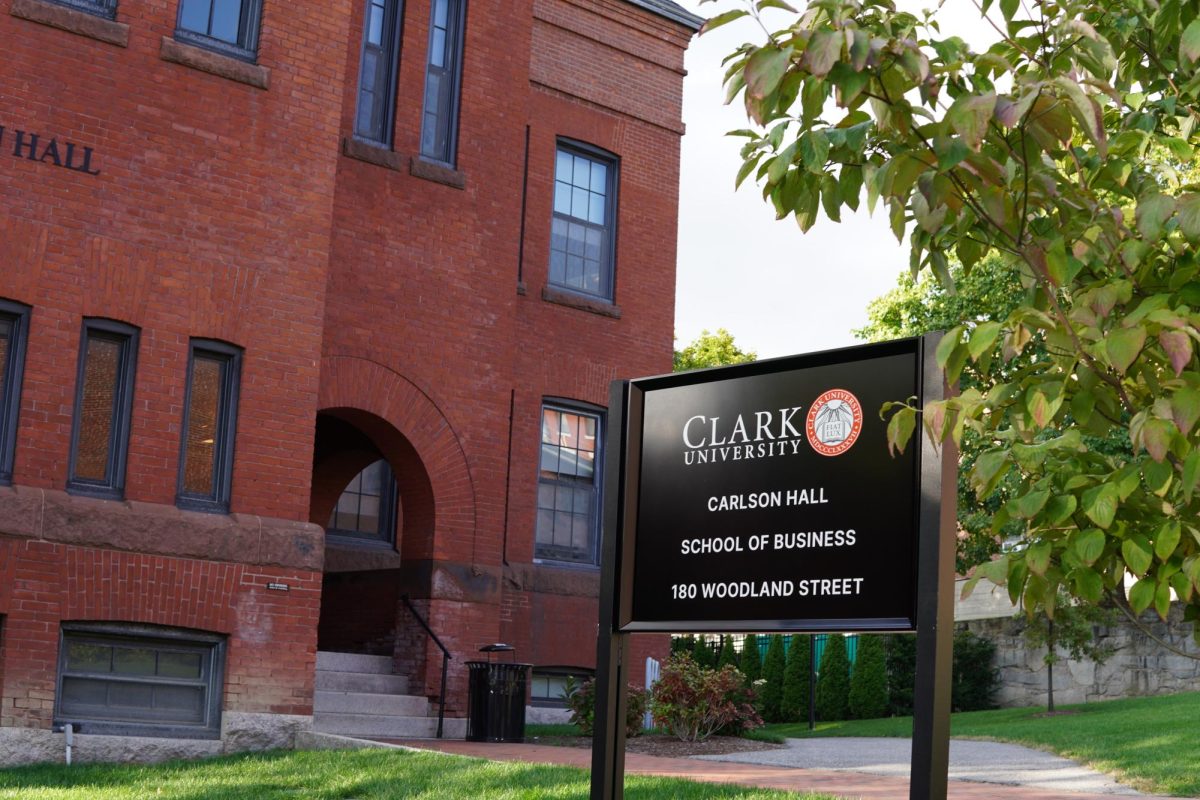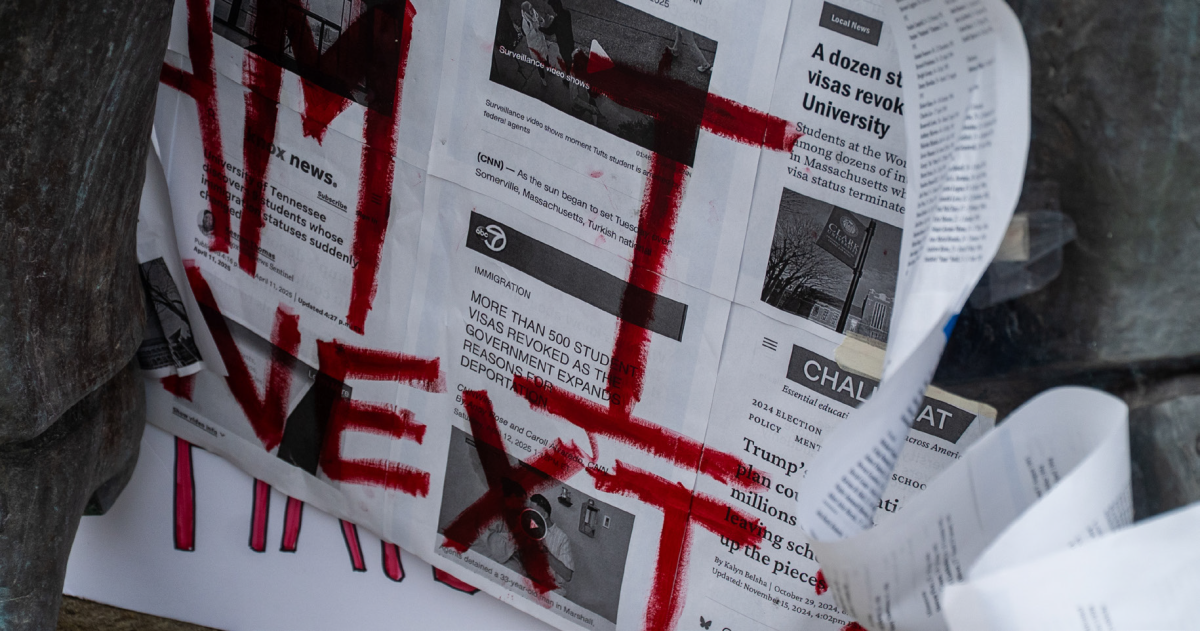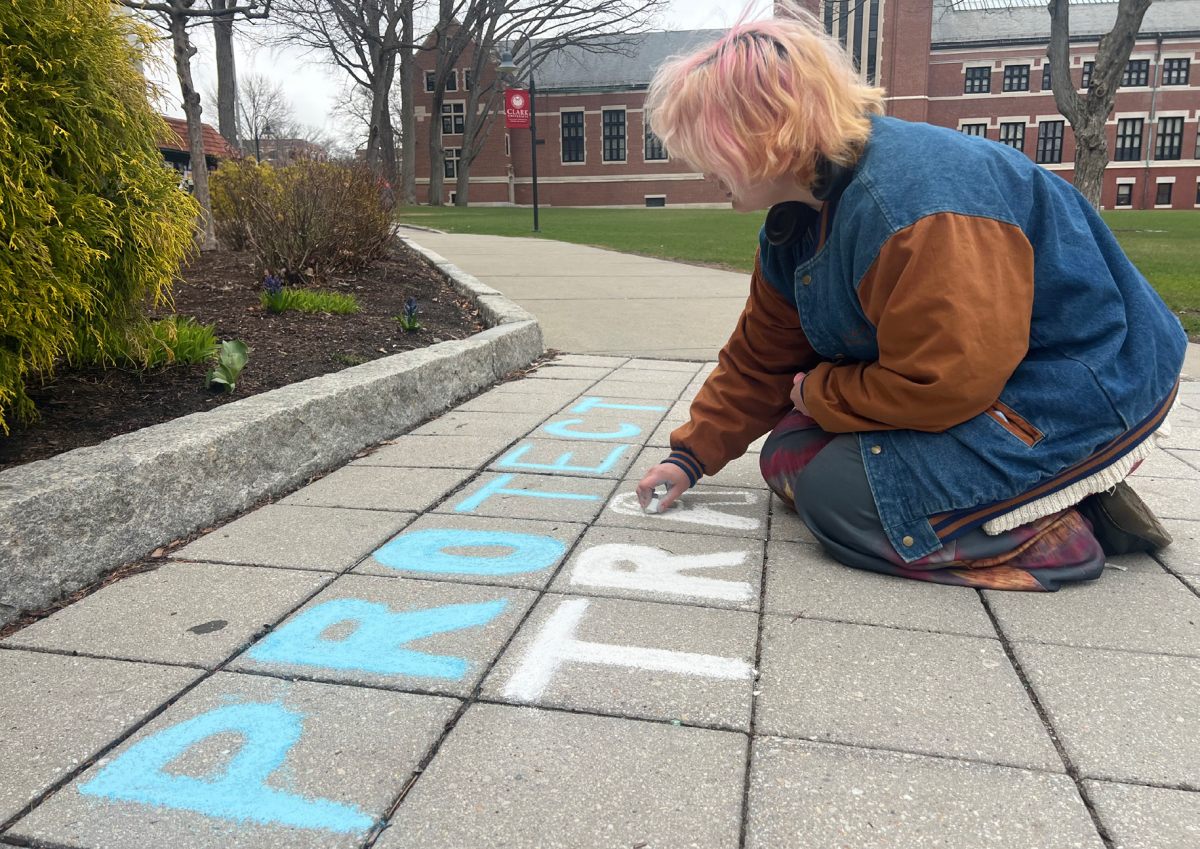The Entrepreneurship and Innovation (E&I) program at Clark University is the organizer behind entrepreneurial events on campus. They host the small business pop-ups on Wednesdays, the thrift store and ClarkTank. They also provide a platform to support student-owned businesses, according to the Clark Student Ventures website, which is student-run. But, recent cuts to student employee hours behind the scenes are affecting what events the program can run.
The Scarlet spoke with two student workers in the program about cuts to their hours. Both opted to stay anonymous to protect their employment status, and will thus be referred to as Employees A and B.
“It is very valuable to hire students, and it’s a great opportunity that it can hire so many different types of people,” Employee A stated. According to this employee, E&I is the biggest minor on campus with the biggest team of student workers, excluding research.
“If you really have an idea and you wanna do it, you can do it. It’s student-run and student-based,” Employee B said. “The internal stuff is done by students. The marketing is done by students.”
Both workers had been a part of the program since at least last year. “Last year I actually had hours and pay,” Employee B said. “It was a lot more structured, so there was much less worry in terms of everything.”
But there has been a huge difference for this year since the former boss left her position. The employees allege that their former boss promised consistent fall employment. However, there was significant lag during the onboarding process, referring to the process in which an employee is integrated into their position.
When asked if the workers were onboarded for this year, Employee B answered, “I think. But I don’t have hours. I am a substitute, if somebody needs it.”
Employee A, currently onboarded, said that the entire reason they were given hours is because the current boss sacrificed 16 of his hours to give 4 hours a week to 4 different people.
“The only people onboarded were the thrift store workers at the start of the year,” the employee explained. “The people that ran the pop-ups, website, and the social media marketing all had problems with onboarding.”
This worker stressed that the current boss who sacrificed his hours for them is a graduate student. “He is also just a student in a position where we used to have a full-time person employed,” they said.
But with so few workers onboarded, E&I is struggling to stay afloat. The workers said that the thrift store’s hours were cut and that there’s no word on ClarkTank, either. There used to be an E&I podcast, which has since been discontinued due to budget cuts. There are way less events taking place than there were last year.
Even the student website was down for some time. “The website was shut down until we fought for the students running it to get their hours back,” Employee B said.
“Because it’s a student-run program, you need students to run it, and if you don’t have students to run it, it’s not gonna be a functional program,” Employee A explained.
I asked both of the workers what they believe is happening. It’s hard to tell for sure, because they allege that there has been a huge lack of communication, especially involving Andrea Aiello, the Associate Dean of Clark’s School of Business. She oversees the current supervisor of the program.
Employee A described their efforts to get onboarded this semester. After weeks of silence when they were supposed to have received word about being onboarded, a team of workers had attempted to contact Aiello multiple times, hoping to meet with her, to no avail.
After some digging, they found out that David Jordan, the Dean of the School of Business, supervised Aiello. Dr. Jordan’s secretary informed them that they would instead have to meet with Aiello first, even after Aiello had ignored their previous attempts.
“She was polite, but she shot down the possibility of us getting onboarded,” Employee A explained. “Our current boss had to jump in and sacrifice his hours. We got onboarded early October, when it was supposed to be late August.”
Employee B reiterated the problem of communication: “The position has no hours to it, no structures, and nobody checking in.”
With an inconsistent style of communication down the hierarchy, it is difficult to parse the true source of the problem. Employee A wonders if Aiello is a major part of the problem.
Additionally, the worker was skeptical of Clark opening up a new 3D Printing lab at the same time as hour cuts were implemented.
“It’s an interesting thing that they’re having these budget issues but can afford to do that,” they said.
Employee B leaned on budgeting issues being the source. “Clark lost tons of money because of the FAFSA issue,” they said. “They’re clearly scrambling to make money.”
“I don’t think it’s a specific person at fault,” the student said. “It’s a collective fault. Maybe Andrea is told by the higher-ups to save money here, and she’s taking that information and creating her own story with it.”
The hour cuts have had a negative effect on the workers for the program. Employee A made around $150 a week, and Employee B $77 a week, last year. After the cuts, the former now makes $60 a week and the latter is not paid.
“I was going into this year knowing I’d have a certain amount of money per week,” Employee A said. “I was spending money knowing I would have this income. I rely on my student employment to pay for a lot of school supplies. Suddenly not having that for a month was bizarre.”
“It sucks,” Employee B said. “I can feel the passion dying inside people, including myself. It’s kinda sad. We all loved this program so much.”
Both workers are hopeful that this will eventually be resolved.
“I think the first step is making people aware that it is happening,” Employee A said. “Things like the pop-ups and the thrift store are so universally loved. It is out of touch to deem the people running these things as unnecessary. We need the funding that we had last year to come back.”
There is also an effort to find a boss that will replace the graduate student currently in the position.
“We interviewed some of the candidates, but we don’t have a say at the end of the day,” Employee B said. “The people at the top don’t know what they’re looking for. They don’t know what they need from a lower point of view.”
“I wish for a better future for other students to fall in love with entrepreneurship as much as I did,” this student worker said. “This program is the reason I switched my major and why I’m on this path in life. Whatever happens, I hope it is beneficial for students in the future.”





Andrea Aiello ~ Nov 22, 2024 at 2:25 pm
I was very disappointed to read this article. In all my 22+ years at Clark University I have never not responded to a student’s request to meet with me. As soon as I heard students wanted to meet, a meeting was scheduled. Budget cuts were a sad reality for many programs and it was unfortunate we could not continue all the same programming as last year but we have held some excellent events like the Women in Entrepreneurship luncheon and Clark Tank is already in the works!